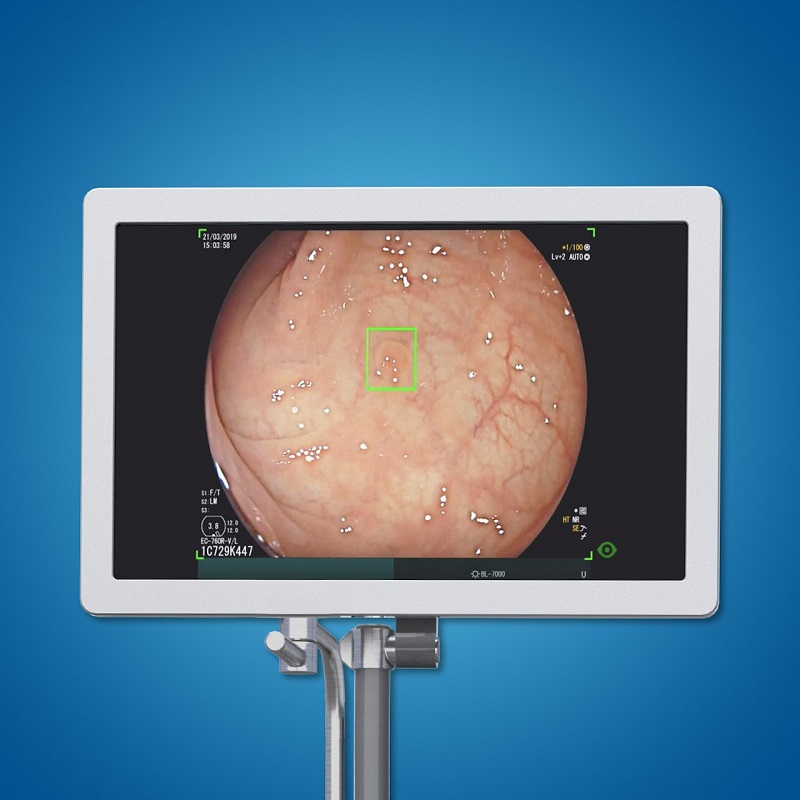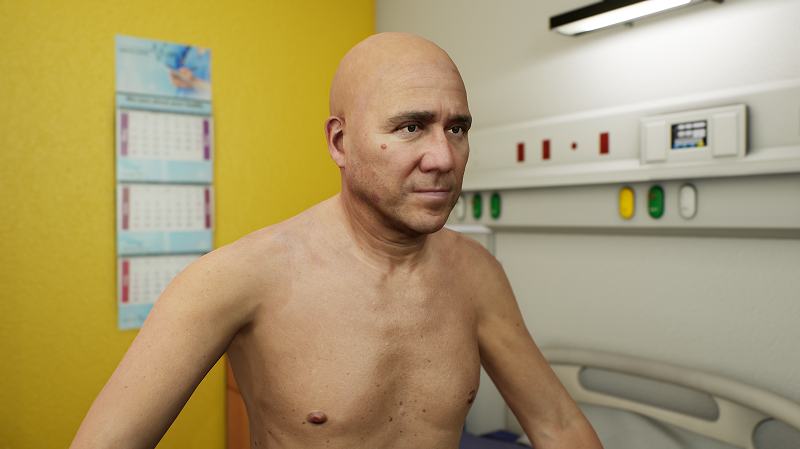Over the past two decades machines have taken over many aspects of our everyday lives.
But, in more-recent times, machines themselves have become much more advanced, and the widespread adoption of artificial intelligence (IT) is driving a large part of this revolution.
A truly-artificially-intelligent system is one that learns as it goes along, creating algorithms that rely on pre-defined behaviours, therefore improving and getting smarter as they gain more knowledge.
And, while the healthcare sector has been slow in embracing new ways of working compared to other sectors; moving into 2021 AI is set to become a driving force for change.
Funding innovation
Last year the Accelerated Access Collaborative (AAC), in partnership with NHSX and the National Institute for Health Research (NIHR), announced the Artificial Intelligence Award, which will make £140m available over three years to accelerate the testing and evaluation of the most-promising AI technologies which meet the strategic aims set out in the NHS Long-Term Plan.
Compared to recent years, 2020 saw some of the most-promising developments for the widespread adoption of modern, AI-driven solutions across the health service
The moneypot is part of a £250m fund launched by the Department for Health and Social Care to NHSX to establish an AI lab aimed at improving the health and lives of patients across the country.
And, in September, the Government announced a further £50m worth of funding to scale up the work of existing Digital Pathology and Imaging Artificial Intelligence Centres of Excellence, which were launched in 2018 to develop cutting-edge digital tools to improve the diagnosis of diseases such as cancer.
But just what benefits can AI bring to the healthcare system?
Justin Hall, vice president and general manager for EMEA at iRhythm Technologies, explains: “Compared to recent years, 2020 saw some of the most-promising developments for the widespread adoption of modern, AI-driven solutions across the health service.
“From reducing the number of patient appointments, to improving the detection and diagnosis of serious medical conditions; the advanced potential of such innovations is finally being realised.
“And this year we will see even-greater emphasis around the role these intelligent technologies will play in the future of care.
“Clinically-validated AI-solutions – particularly those which have the potential to swiftly address genuine problems and needs across the health service – will receive greater funding.
“And, in turn, modern technologies will be evaluated and trialled a lot more quickly, helping to bring AI solutions to more people and speeding up the path to widespread adoption.”
Making an impact
Diane Nole, executive vice president and general manager for healthcare at Nuance Communications, adds: “Over the coming months IT vendors will expand the availability of AI-powered analytics tools that make it possible to tap the potential clinical and research value of vast volumes of healthcare data generated daily.
“We will also see increased adoption of solutions that deliver workflow integrated real-time AI for clinical decision support at the point of care.
“This will be a significant element in providing better care and financial outcomes, improving patient and clinician satisfaction, and reducing physician burnout from administrative workloads.”
One example of where AI is of benefit is in helping to process clinical correspondence; a massively-time-consuming task that places a great administrative burden on medical professionals.
To address this issue, British software firm, Advanced, is working with researchers at The University of Manchester and AI specialist, Spectra Analytics, to develop a solution that will process clinical correspondence in primary care settings, which have faced growing pressure since the Coronavirus outbreak.
In an environment of tightening budgets and rising expectations, it’s critical for healthcare organisations to unlock the ability to do more with less
Together, the team is creating AI tooling for a new version of the healthcare software, Docman10 – known as Docman10X – to automatically read patient letters and only show letters to GPs which the AI system thinks need further action.
Dr Benjamin Brown, a GP partner in Salford and researcher at The University of Manchester, is leading the project and said: “We are developing an AI solution that, for the first time, will enable GPs to automate both repetitive and time-consuming tasks so they can instead spend more time on what they’ve spent years training to do – consulting with patients and providing the best-possible care.
“By automating the triage of letters, not only could we see a significant time saving for staff; but also potentially increase patient safety by speeding up how quickly GPs can action letters that actually need their input.”
AI can also help with clinical diagnoses and decision making.
GE Healthcare is currently working with the University of Oxford-led National Consortium of Intelligent Medical Imaging to develop, enhance, and test potential algorithms to help diagnose COVID-19 pneumonia.
The technology will predict which patients will develop severe respiratory distress – a key cause of mortality in patients who develop COVID-19 pneumonia – and which patients might develop longer-term lung function problems.
Using AI, the algorithms will incorporate data from thousands of patients medical imaging, laboratory, and clinical observations to provide both a quicker diagnosis and a prediction of how a patient may progress and recover.
GE has also harnessed the power of AI to create the Thoracic Care Suite, which scans for eight key chest X-ray abnormalities.
It quickly analyses chest X-ray findings and flags abnormalities to radiologists for review, including pneumonia, which may be indicative of COVID-19 as well as tuberculosis, lung nodules, and other radiological findings.
Blazing a trail
Kieran Murphy, president and chief executive of GE Healthcare, said: “The pandemic has proven that data, analytics, AI and connectivity will only become more central to delivering care.
“For GE Healthcare, that means continuing to advance intelligent health and providing innovative technologies.
“And this new offering is the latest example of how X-ray and AI can uphold the highest standard of patient care amid the most-modern of disease threats.”
And the London Clinic recently became the first hospital in the UK, and one of the first in the world, to employ GI Genius, a revolutionary device that uses AI to enhance the quality of colonoscopies, offering a new solution for the early detection of colorectal cancer.
The GI Genius module – produced by Medtronic – is the first system worldwide to use AI to detect colorectal polyps.
It acts as a second observer during colonoscopies, helping to assist doctors by identifying lesions and small mucosal abnormalities that may signal cancer.
The pandemic has proven that data, analytics, AI and connectivity will only become more central to delivering care
And studies have shown that having a second observer can increase polyp detection rates; and every 1% increase in adenoma detection rate reduces the risk of colorectal cancer by 3%.
Ibex Medical Analytics, a pioneer in AI-powered cancer services, also recently partnered with digital pathology services specialist, LD Path, to launch the UK’s first rollout of clinical-grade AI applications for cancer detection in pathology.
During initial use, the AI-powered solution identified undetected prostate cancer as part of an ongoing audit carried out at the request of an NHS trust.
Sanj Lallie, director of operations at LD Path, said: “We are proud to be the first UK pathology provider to integrate AI into the digital pathology workflow by partnering with Ibex to improve cancer diagnosis.
“This is a significant step in realising the benefits of AI tools within the UK as we continue to redefine traditional workflows across our NHS network.”
He added: “The COVID-19 crisis has highlighted the need for advancing innovation and utilising new technologies to improve patient care.
“And, by using AI and digital pathology, we are better prepared to continue to work effectively during lockdowns, and handle the anticipated surge in the volume of tests and an increase of the pathology workload once we emerge from this pandemic.”
Dr Iain Brown, head of data science at SAS UK, predicts it is key conditions like cancer that will benefit greatly from the adoption of AI-powered technologies over the coming months and years.
He told BBH: “The use of AI to more-accurately identify cancer is a great example of how the technology can be used.
“Using AI to detect cancer is also a perfect example of how the technology can work symbiotically with humans.
“In this instance, it is reducing the workload of already-overburdened clinicians, allowing them to focus on providing better care for their patients.
“At the same time, the technology will also provide faster and more-accurate results than ever before, to assist decision-making and complement human expertise.”

North West Anglia NHS Foundation Trust is using Civica's Aurum platform to identify millions of pounds worth of service improvement opportunities
Driving efficiency
But there are also many other ways in which the health sector can benefit from the adoption of AI, in particular highlighting areas where improvements can drive much-needed efficiencies.
With this in mind, Civica has been working with North West Anglia NHS Foundation Trust to implement its AI platform, Aurum, in order identify millions of pounds worth of service improvement opportunities.
The platform uses the latest data science techniques to find instances of systemic variation in clinical activity, which would otherwise go undiscovered.
Developed in conjunction with Civica’s innovation lab, NorthStar; the assisted analytics platform takes insights from the CostMaster cloud-optimised software, which already provides the NHS trust with patient-level costing, service line reporting, and end-to-end cost management to remove unwarranted variation and improve patient outcomes.
For example, the platform will spot a consultant who may consistently takes 40 minutes longer than the rest of their peer group to complete the same procedure in comparable conditions.
This means trusts can better tailor support to clinicians, spotting areas for improvement, helping to improve overall quality and efficiency of care.
In a recent pilot with six UK NHS trusts, the platform completed the equivalent of 13 years of traditional analysis in under 24 hours.
By using AI and digital pathology, we are better prepared to continue to work effectively during lockdowns, and handle the anticipated surge in the volume of tests and an increase of the pathology workload once we emerge from this pandemic
And it identified a minimum of 3% additional annual cost savings for each trust, finding nearly £40m of improvement opportunities to drive operational efficiencies in healthcare delivery and patient care.
AI can even be used to help with training.
Virti has designed ‘virtual patient’ technology which enables medics and trainees to interact with AI’powered ‘patients’ via a computer, tablet or VR and AR headset and roleplay lifelike, interactive scenarios.
This is proving particularly attractive to universities and healthcare trusts during the current pandemic where face-to-face and on-site training is restricted.

Tom Allen, founder of The AI Journal
Dr Alex Young, a former NHS surgeon who created the Virti technology, said: “We’ve been working with healthcare organisations for several years, but the pandemic has created really-specific challenges that technology is helping to solve.
“It’s no longer safe or practicable to have 30 medics in a room with an actor, honing their clinical soft skills.
“With our virtual patient technology, we’ve created an extremely-realistic and repeatable experience that can provide feedback in real time.
“This means clinicians and students can continue to learn.”
With so many potential uses within healthcare, there have been concerns that AI and machine learning will end up replacing clinicians.
However, Eric Topol, as part of the recommendations of the Topol Review, said AI would actually prepare the current workforce for a digital future with new models of care.
Tom Allen, founder of The AI Journal, told us: “We may see shifts in roles and some may need to diversify, but AI will actually gift healthcare professionals with more time to reconnect with the human side of medicine, and move them away from the complex processes that often act as barriers to delivering the best-possible care.”
But he warns that changes will need to be made in order for the true benefits of AI to be realised in the health sector.

A key future use for AI is in helping to improve detection and diagnosis of cancer. The London Clinic recently became the first hospital in UK to use GI Genius, which uses AI to enhance the quality of colonoscopies
A learning tool
He said: “AI is not a ‘set it and forget it’ technology.
“Models cannot be built once and remain useful forever.
“So-called ‘Black Swan’ health events, such as we’ve seen with COVID-19, present unique situations and therefore we cannot rely on historical data to make accurate predictions.
“The way to deal with this is to use an AIDevOps model to challenge the AI system by using some data to train the model, and additional datasets to test it.
“Outlier events like these should then trigger an alert for human review.”
A change in leadership will also be vital.
Allen said: “Leaders need to embrace a mindset of innovation that is no longer sustained by acquired experience and past knowledge, but is curious, inquisitive, and responsive.
“Leaders need to be trained in asking the right questions instead of directing in a known and predictable environment.
“Such a transformation may be difficult in some organisations, and ones that promote experimentation will thrive.
Such a transformation may be difficult in some organisations, and ones that promote experimentation will thrive
“However, the difficulty for many is that their governance is not prepared for this kind of agility.”
He adds: “There are two main challenges that need to be overcome for us to progress with next-generation technology in healthcare.
“The first is that healthcare has always taken a ‘prove the cost savings before investing’ approach.
“This approach to innovation is very much fear based and doesn’t take into account the unexpected benefits of a new application.
“The second challenge is that healthcare has not traditionally been great at incentivising health providers to share learnings and results for the greater good because they often compete against one another.
“When it comes to common hurdles like data interoperability, there is a clear benefit in using consolidated buying power and shared data.
“But to take advantage of this, there needs to be a change in funding structures and more clarity around budgetary responsibility.”
Ethics will also come into play.
Allen warns: “Some specific ethical considerations include patient confidentiality, the role that the bot may play in the diagnostic journey, and the risk of potential biases in the data used by machine learning algorithms.
“It is essential that developers have access to diverse datasets that include a wide range of ethnicities, genders, ages and other key variables.
“We cannot allow data gaps to put certain patient populations at greater risk of medical errors when using AI.”
He adds: “As we face this fascinating future, a number of questions arise in my mind that we will need to find answers on.
“What are the pain barriers that healthcare providers will need to go through before they can realise the opportunities?
“Will COVID-19 ultimately be seen as a catalyst for the improved integration of AI into healthcare systems, or a missed opportunity?
“What challenges must be overcome with regards to data privacy, acceptability and ethics?
“And how can the industry as a whole work to mitigate bias around ethnic and gender diversity in AI-driven solutions?
“These will all be factors which we will be looking at as an industry as AI continues to make a mark on the healthcare sector.”

Virti's 'virtual patient' was created by a former NHS surgeon to enhance medical training and has been particularly useful due to the social distancing rules brought about by the Coronavirus pandemic
And Simon Perks, head of robotics and AI at Agilisys, concludes: “In an environment of tightening budgets and rising expectations, it’s critical for healthcare organisations to unlock the ability to do more with less.
“In 2021, one technology that has a major role to play is Robotic Process Automation (RPA).
“A key application of RPA is to automate repetitive and time-consuming tasks that would otherwise require human interaction.
“By doing so, healthcare organisations can free up around 30% of their staff, allowing them to refocus their time on other more-valuable, important, and people-orientated tasks.
“By embracing automation in 2021, healthcare organisations will be able to work faster, smarter and more cost-effectively.
“Robotics, alongside artificial intelligence is often a term that is feared within organisations. However, the reality is that implementing RPA does not replace the human element, but enhances it.”
The Top 8 ways AI will transforming healthcare (source PwC)
1. Keeping well: The use of AI and the Internet of Medical Things encourages healthier behaviour in individuals and helps with the pro-active management of a healthy lifestyle. Additionally, AI increases the ability for healthcare professionals to better understand the day-to-day patterns and needs of the people they care for, and provide better feedback, guidance and support.
2. Early detection: AI is already being used to detect diseases, such as cancer, more accurately and in their early stages, enabling review and translation of mammograms 30 times faster with 99% accuracy, reducing the need for unnecessary biopsies. The proliferation of consumer wearables and other medical devices combined with AI is also being applied to oversee early-stage heart disease, enabling medics to better monitor and detect potentially life-threatening episodes at earlier, more-treatable stages.
3. Diagnosis: IBM’s Watson for Health is helping apply cognitive technology to unlock vast amounts of health data and power diagnosis. It can review and store far more medical information exponentially faster than any human. And Google’s DeepMind Health is working in partnership with clinicians, researchers and patients to solve real-world healthcare problems, combining machine learning and systems neuroscience to build powerful general-purpose learning algorithms into neural networks that mimic the human brain.
4. Decision making: Improving care requires the alignment of big health data with appropriate and timely decisions, and predictive analytics can support clinical decision making and actions as well as prioritise administrative tasks. Using pattern recognition to identify patients at risk of developing a condition – or seeing it deteriorate due to a number of factors – is another area where AI is beginning to take hold in healthcare.
5. Treatment: Beyond scanning health records to help providers identify chronically-ill individuals, AI can help clinicians take a more-comprehensive approach to disease management, better co-ordinate care plans and help patients to better manage and comply with their long-term treatment programmes.
6. End-of-life care: Robots have the potential to revolutionise end-of-life care, helping people to remain independent for longer. And AI, combined with the advancements in humanoid design, is enabling robots to go even further and have ‘conversations’ and other social interactions with people to keep ageing minds sharp.
7. Research: Drug research and discovery is one of the more-recent applications for AI in healthcare. By directing the latest advances in AI to streamline the drug discovery and drug repurposing processes there is the potential to significantly cut both the time to market for new drugs, and their costs.
8. Training: The advent of natural speech, and the ability of an AI computer to draw instantly on a large database of scenarios, means the response to questions, decisions, or advice from a trainee can challenge in a way that a human cannot. And the training programme can learn from previous responses, meaning challenges can be continually adjusted to meet learning needs. And training can be done anywhere; with the power of AI embedded on a smartphone.
Click here to read our further insight from industry leaders into how AI can be introduced more rapidly across the healthcare sector.
